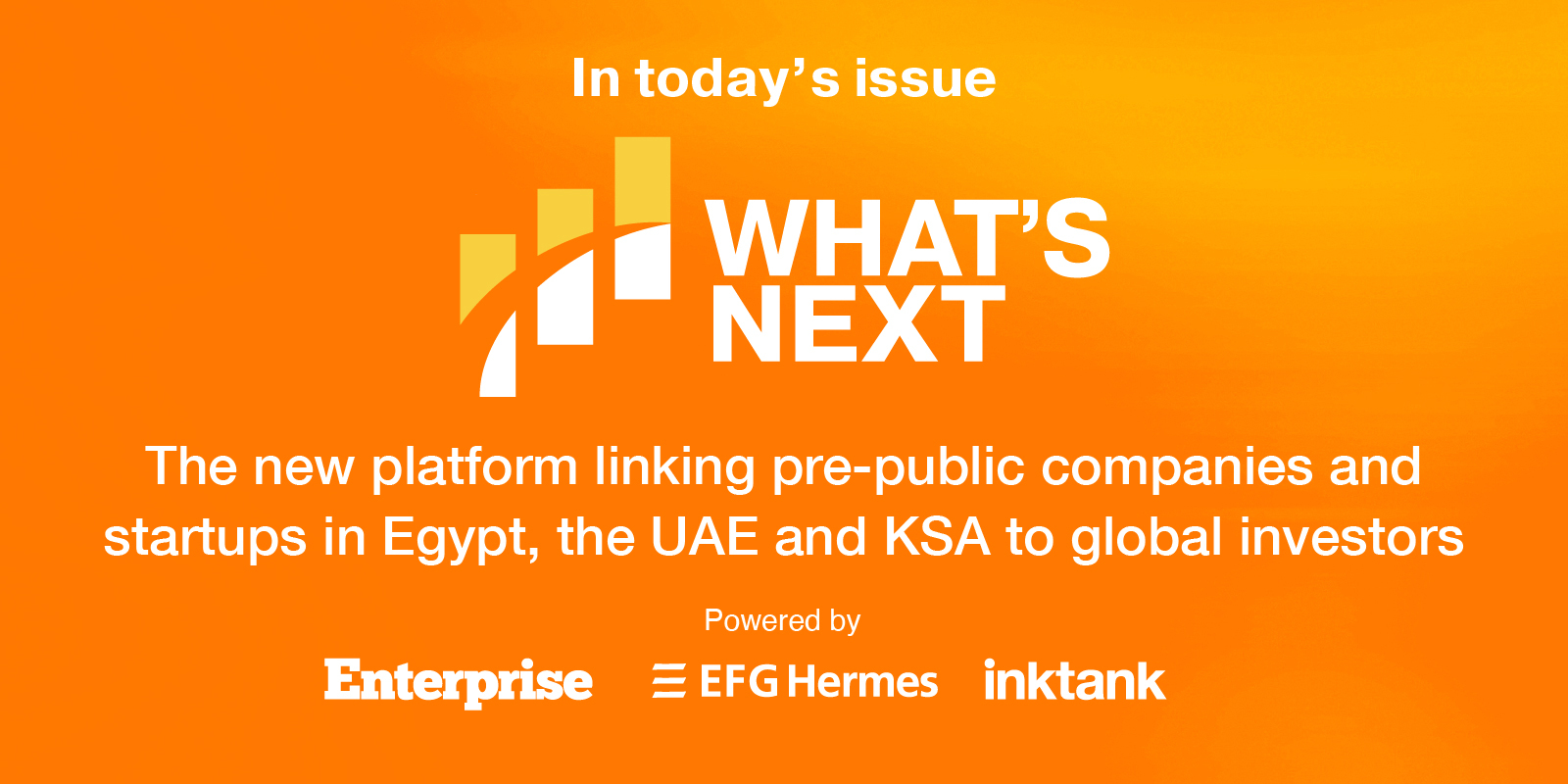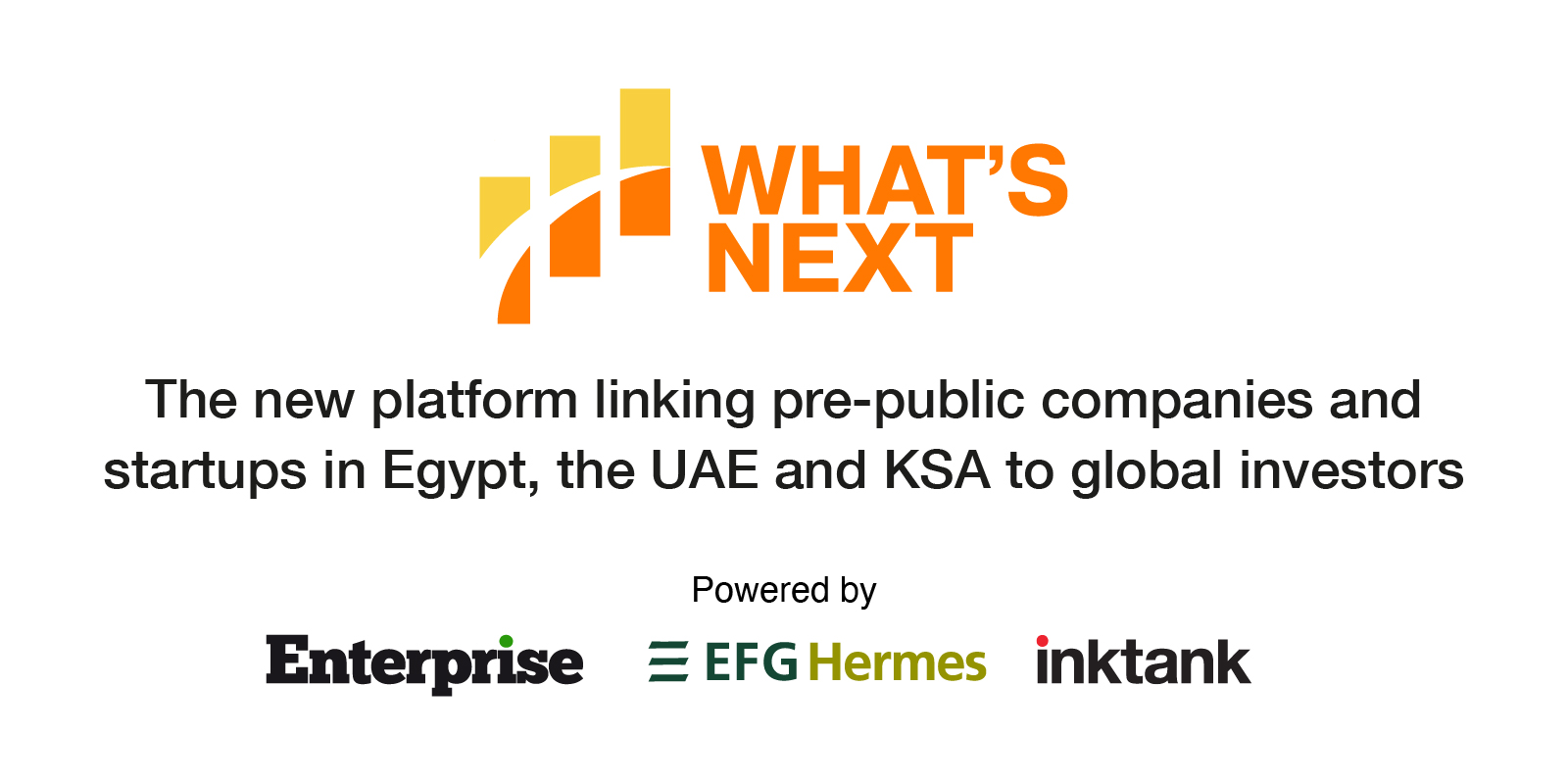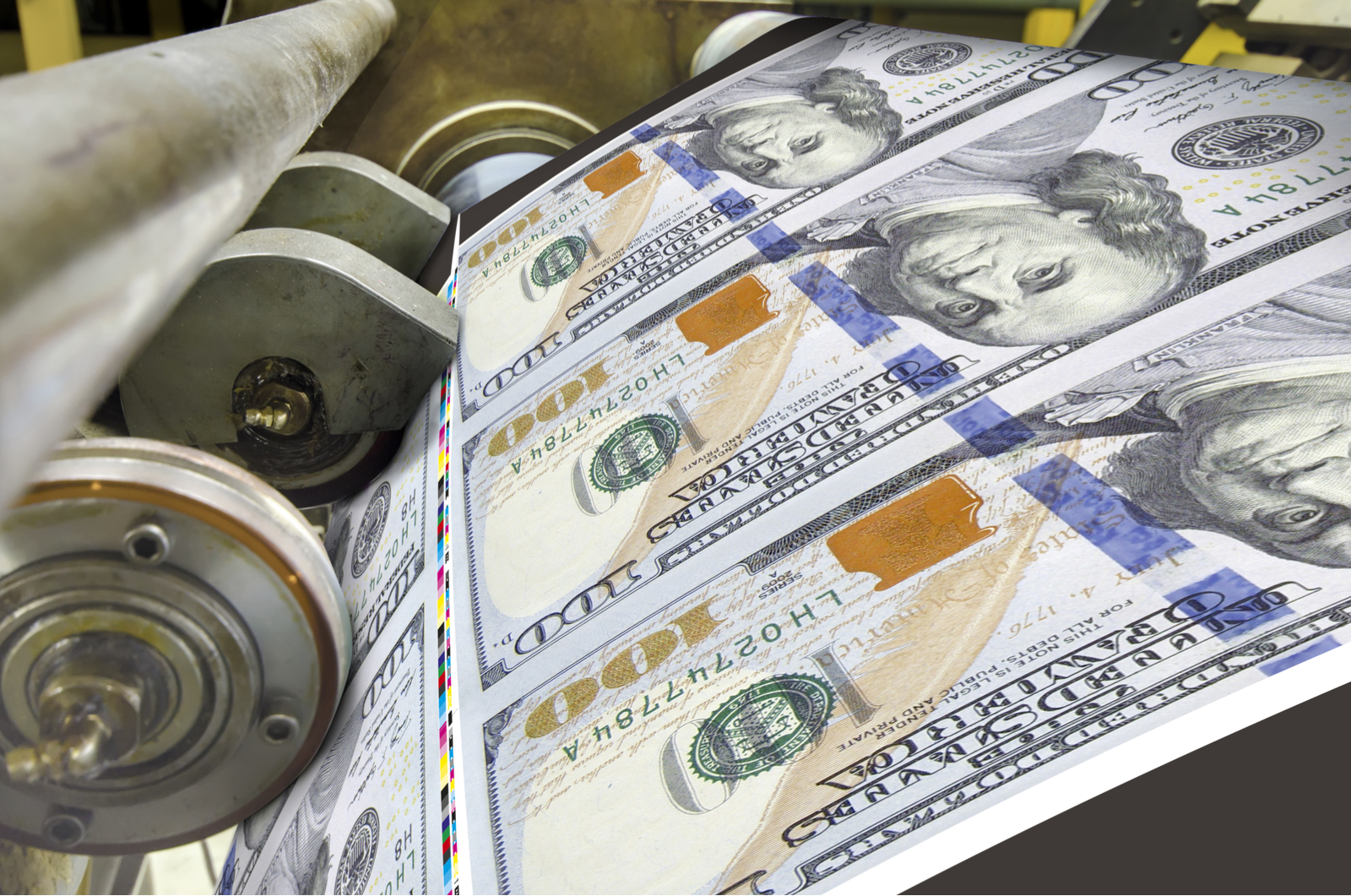- Inflation falls unexpectedly in June. (Economy)
- Petrol prices are up again — and the gov’t has hiked diesel prices for first time in years (Energy)
- Egypt, IMF hold “productive” talks on new loan programme, but there’s no new agreement just yet, even with White House backing. (Economy)
- ADQ’s Agthia to buy majority stake in Auf Group. (M&A Watch)
- Foreign reserves fall again in June. (Economy)
- Egypt could be considering becoming a BRIC. (What We’re Tracking Today)
- Here’s what Biden achieved during his much-hyped visit to Riyadh — and what he didn’t. (Diplomacy)
- SMEs get three-year real estate tax holiday. (Cabinet Watch)
- How did Egypt’s Planet Startup fare in the first half of 2022? (What’s Next)
- The 2022 emerging market debt sell-off is getting serious. (Planet Finance)

Sunday, 17 July 2022
AM — It’s an inflation surprise as we return to work following a full week off
TL;DR
WHAT WE’RE TRACKING TODAY
Good morning, wonderful people. We hope you had a fantastic week off — and that those of you not sunning yourselves in Sahel are looking forward to a productive day, starting with remembering (a) where you work, (b) what you were doing before the break, and (c) what might be on your priority list this week.
WATCH THIS SPACE #1- Do the BRICs still matter? Egypt is apparently positioning itself for membership, planning to apply alongside Saudi Arabia and Turkey for membership in the loose group of major emerging economies. Bids from new countries will be discussed at next year’s summit in South Africa, the organization’s president told Russian outlet Izvestia last week.
We’re going to need a bigger acronym: The loose economic alliance was formed by China, Russia, India and Brazil in 2006, and added South Africa to its ranks in 2010. The news that Egypt, Saudi Arabia and Turkey are considering joining comes a few weeks after Iran and Argentina submitted membership bids.
WATCH THIS SPACE #2- Banque du Caire pushing IPO to after 2022? State-owned Banque du Caire is postponing its long-awaited IPO thanks to miserable conditions in global equities markets, Al Borsa writes, quoting an unnamed source. The bank was set to make its EGX debut before the end of the year as part of the state’s privatization plans.
OTHER THEMES YOU’LL WANT TO KEEP AN EYE ON (aside from where the hell the stock market is heading) as we enter the dog days of summer:
- Inflation. It’s not going anywhere. Yes, it was down (month-on-month) in June (see below). But that’s likely a one-off, and concern about food prices is now firmly on the global radar, with BlackRock’s Larry Fink being the latest to beat the drum.
- The US midterm elections — and the race for the presidency in 2024. Americans head to the polls this November, with campaign season kicking into high gear as we return from Sahel. This comes as Joe Biden faces questions about his age and record-low approval rating — and as Agent Orange is reportedly debating not whether to run, but when to announce he is indeed, seeking another term.
- Chinese banks and that real estate crisis that never really went away, particularly after authorities “held emergency meetings with banks after growing alarmed that an increasing number of homebuyers across the country are refusing to pay mortgages on stalled projects.” Blomberg and Reuters are on it.
HAPPENING TODAY-
President Abdel Fattah El Sisi is in Berlin today and tomorrow for the Petersburg Climate Dialogue, the German Embassy in Cairo said in a statement. The president will also hold meetings with German officials including Chancellor Olaf Scholz and President Frank-Walter Steinmeier.
HAPPENING THIS WEEK-
An agreement to unlock Ukrainian wheat via the Black Sea could be signed this week, Russian news agency Tass reported on Friday. Turkey said Thursday that it reached an agreement with Ukraine, Russia and the UN to establish a naval corridor in the Black Sea, which would pave the way for Ukraine’s Black Sea ports to reopen and wheat exports to resume.
UN Secretary-General Antonio Guterres is (very cautiously) optimistic that an agreement is in reach, noting that it will take “a lot of goodwill and commitment,” according to the Financial Times.
THE BIG STORY ABROAD-
Biden’s trip to the Middle East has pride of place on the international front pages this morning with global media commenting on everything from what it means for global oil prices and US policy in the region to Saudi-Israel rapprochement and THAT fist-bump. We have all the details on the president’s visit to the region in this morning’s Diplomacy section, below. (Reuters | AP | Bloomberg | FT | WSJ | NYT | CNBC)
The Russia-Ukraine conflict is making global front pages once more after Moscow said yesterday that it would step up its attacks against Ukrainian positions in “all operational areas.” The Russian military has bombed several targets outside of the east of the Donbas in recent days, launching strikes against Kyiv and towns in the central Dnipro and eastern Kharkiv regions. (Reuters | Bloomberg | AP | CNBC | Washington Post)
|
MARKET WATCH-
We could be finally catching a break from the commodities crunch — but it’s not all good news: Wheat and oil prices both fell below pre-war lows last week as optimism builds that the global wheat shortage is easing — and pessimism increases that the global economy is about to fall into recession.
Wheat prices are coming back down to earth: Chicago wheat futures had their worst week since March 2011 last week, falling around 15% to close the week at USD 781 a bushel. That’s the lowest price since before Russia invaded Ukraine in late February and down almost 40% from the recent peak. News that grain exports from Crimea are surging and optimism over a pact to reopen Ukrainian ports caused futures to slide again on Friday, extending a sharp descent partly triggered by a spate of good news suggesting that global wheat supply is improving.
Oil prices (briefly) fell to pre-war levels for the first time: Brent crude on Thursday fell below USD 95 a barrel for the first time since Russia invaded Ukraine, easing pressure on oil importers (like Egypt) which have seen their import bills balloon since the war broke out. US crude also fell to a pre-war low of USD 90.45 on Thursday. A late-in-the-week rally took Brent back into triple figures, rising 1.3% to USD 101 / bbl on Friday, while WTI climbed to USD 97.6.
The bad news: Recession fears are driving a sell-off in commodities. Energy, metals and food commodities have all gone into reverse in recent weeks as investors bet that an oncoming economic downturn will curb global demand, and temper the impact of the supply shock that sent them to record highs earlier this year. “Fear of recession is what is driving the market today,” one economist told the Financial Times.
CIRCLE YOUR CALENDAR-
State’s national dialogue meetings to resume on Tuesday: The board overseeing the Sisi administration’s national dialogue will hold its second meeting this week, during which it will set a schedule of debate, discuss the agenda and form subcommittees.
Need a refresher on the national dialogue? We’ve got you covered.
Check out our full calendar on the web for a comprehensive listing of upcoming news events, national holidays and news triggers.
*** It’s What’s Next day: We have our weekly deep-dive into what makes and shapes pre-listed companies and startups in Egypt, the UAE and KSA, touching on investment trends, future sector insights and growth journeys.
In today’s issue — the Enterprise Startup Watch 1H2022 report: With all this news about market turbulence, you would think that Egypt’s startup land has been suffering from a funding drought, right? Wrong. Egypt’s startups raised more USDs in 1H2022 than during the same period last year over more transactions. We break those numbers down, taking a look at what sectors prevailed and which didn’t, and exploring what new trends came out of the first six months of the year.
ECONOMY
Inflation slowed in June, but it was probably a one-off
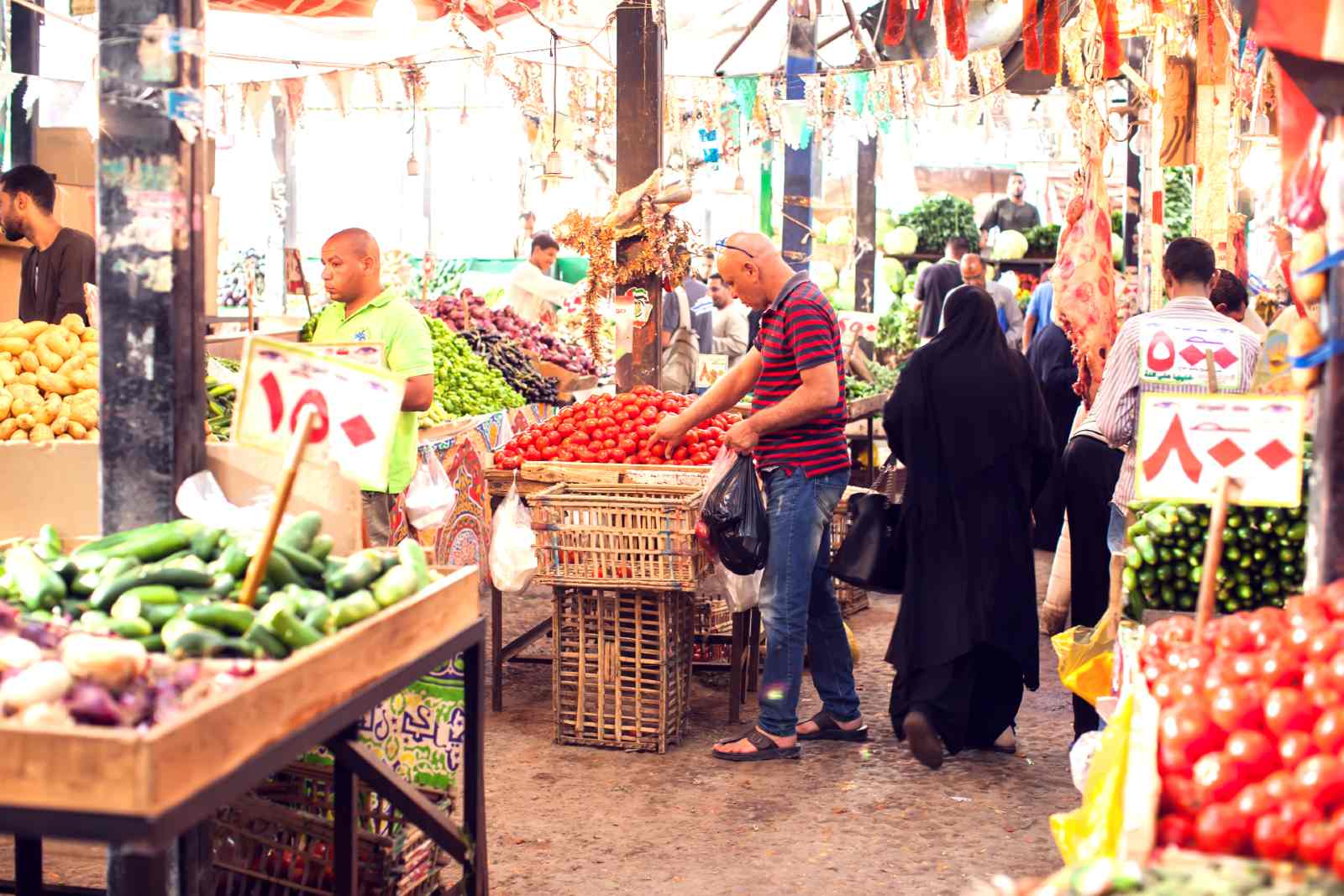
Inflation unexpectedly slowed for the first time in seven months in June as food prices declined for a second month in a row, according to figures from state statistics agency Capmas. Consumer prices in urban areas rose 13.2% during the month, slightly slower than the 13.5% rate of growth we saw in in May. That defied the predictions of most analysts, who had expected rising global commodity prices to continue stoking local inflation. Overall, prices fell on a monthly basis for the first time since December, dipping 0.1%, the figures show.
You can thank a moderation in food prices: Food and beverage prices — the biggest component of the basket used to measure inflation — fell for the second month in a row, declining 1.8% m-o-m due to a large drop in the cost of fruits and vegetables. Food prices were up 22.3% on an annual basis, down from 24.8% in May.
BUT- The slowdown in food prices masked an increase in other items. Most of the other components of the inflation basket rose on an annual basis, with housing and utilities prices rising 7.6% (vs 7.4% in May), healthcare costs rising 4.3% (from 4.0% the month before) and clothes prices jumping to 9.0% (from 7.5% in May).
This pushed core inflation to its highest level since 2017: Core inflation, which strips out volatile items such as food and fuel, climbed 14.6% on an annual basis in June, up from 13.3% in May, according to central bank data (pdf). Core inflation is now at its highest since December 2017 and has more than doubled this year.
The EGP is likely responsible: “A large driver of the pick up in non-food inflation is likely reflecting the impact of a weaker currency,” James Swanston, MENA economist at Capital Economics, wrote in a note. The EGP has fallen 20% against the USD since March.
“The market is still absorbing the effects of the EGP devaluation as well as global inflation, in addition to the effect of higher customs rate for the USD,” Al Ahly Pharos economist Esraa Ahmed wrote in a note. This resulted in “an acceleration in average annual inflation for non-food items, rising from 9.8% in May to 10.4% in June,” she added.
Don’t be surprised if inflation returns to trend next month: “We believe inflation will continue to gain momentum in 3Q2022, with an expected monthly increase of 2.5-3% in July to reflect seasonal spending as well as the new energy prices introduced,” Alia Mamdouh, director of macro and strategy at Beltone Financial told us. “We foresee inflation averaging 15.9% in 3Q2022, up from an average of 13.2% in 2Q2022.”
Does 17% feel right for a peak inflation figure? Capital Economics sees inflation reaching a ceiling of 17% in 4Q. Goldman Sachs also sees a 17% peak this year before falling back to the central bank’s target range by the end of 2023. The central bank is currently targeting 7% (±2%) inflation by the end of 2022.
What does all this mean for interest rates? Most analysts expect the Central Bank of Egypt (CBE) to leave interest rates unchanged at its next meeting on 18 August. “The CBE might be reluctant to rush into rate hikes that are very costly to the Egyptian macro-fiscal front,” Ahmed wrote. “The CBE might prefer to hold rates in its upcoming meeting in August as the deviation from inflation targets is considered among the exogenous shocks that are outside the scope of monetary policy, that could be temporarily tolerated,” she added. Capital Economics thinks the central bank will raise rates by another 150 bps before the end of the year.
The CBE has already raised rates by 300 bps in the past four months in a bid to get a grip on inflation and curb outflows. The Monetary Policy Committee kept rates unchanged in its latest meeting in June and said that it would “temporarily tolerate” the elevated annual headline inflation rate relative to its target until 2023.
Who’s paying attention? The news is getting ink from the good people at Bloomberg.
ENERGY
You’re going to pay more more at the pumps, again

The government raised the price of diesel last week for the first time in years as it looks to reduce its subsidy bill amid rising global energy prices. In its latest quarterly meeting, the fuel pricing committee increased the price to EGP 7.25 per liter from EGP 6.75, as well as hiked petrol prices by up to 10%, the Oil Ministry said in a statement on Wednesday. The new prices went into effect immediately and will remain unchanged until the beginning of 4Q.
Gasoline (petrol) prices also rose last Wednesday:
- 95-octane is EGP 10.75 per liter, up 10.3% from EGP 9.75;
- 92-octane is EGP 9.25 per liter, up 5.7% from EGP 8.75;
- 80-octane is EGP 8.00 per liter, up 6.6% from EGP 7.50.
Mazut fuel oil prices rose by 8.7% to EGP 5k per ton for all industries except food and electricity producers, who continue to be charged EGP 4.2k per ton.
This is the sixth consecutive quarter petrol prices have risen. The price at the pump is now up 23-28% since last April, depending on which grade you’re putting in the tank.
Paying more for fuel = higher inflation: “We expect a higher impact on headline inflation from the implemented increase in prices given that the price of diesel, which is the main fuel used not only in the transportation of commodities, but also in the public and common transportation vehicles,” Alia Mamdouh, director of macro and strategy at Beltone Financial, told us.
Public transport is going to cost more: The Local Development Ministry announced Wednesday that public transport fares — including taxis, microbuses and buses — had increased by 5-7% across the country.
Gov’t acts to curb surging subsidy bill: The state has been absorbing the extra cost of diesel after global fuel prices spiraled on the back of the Russia-Ukraine war — and was facing an annual diesel subsidy bill of EGP 63 bn, Prime Minister Moustafa Madbouly said in a televised address to explain the decision (watch, runtime: 31:27). A liter of diesel has cost EGP 11 on average over the past three months, of which EGP 4.25 was subsidized by the government, costing it EGP 5.4 bn every month, Madbouly said. Following the hike, the state is now looking at a subsidy bill of EGP 55 bn, he said.
The story is getting plenty of ink abroad, especially from business-focused news services. See: Reuters | The National | Associated Press.
ECONOMY
IMF talks were “productive,” but there’s no new help just yet
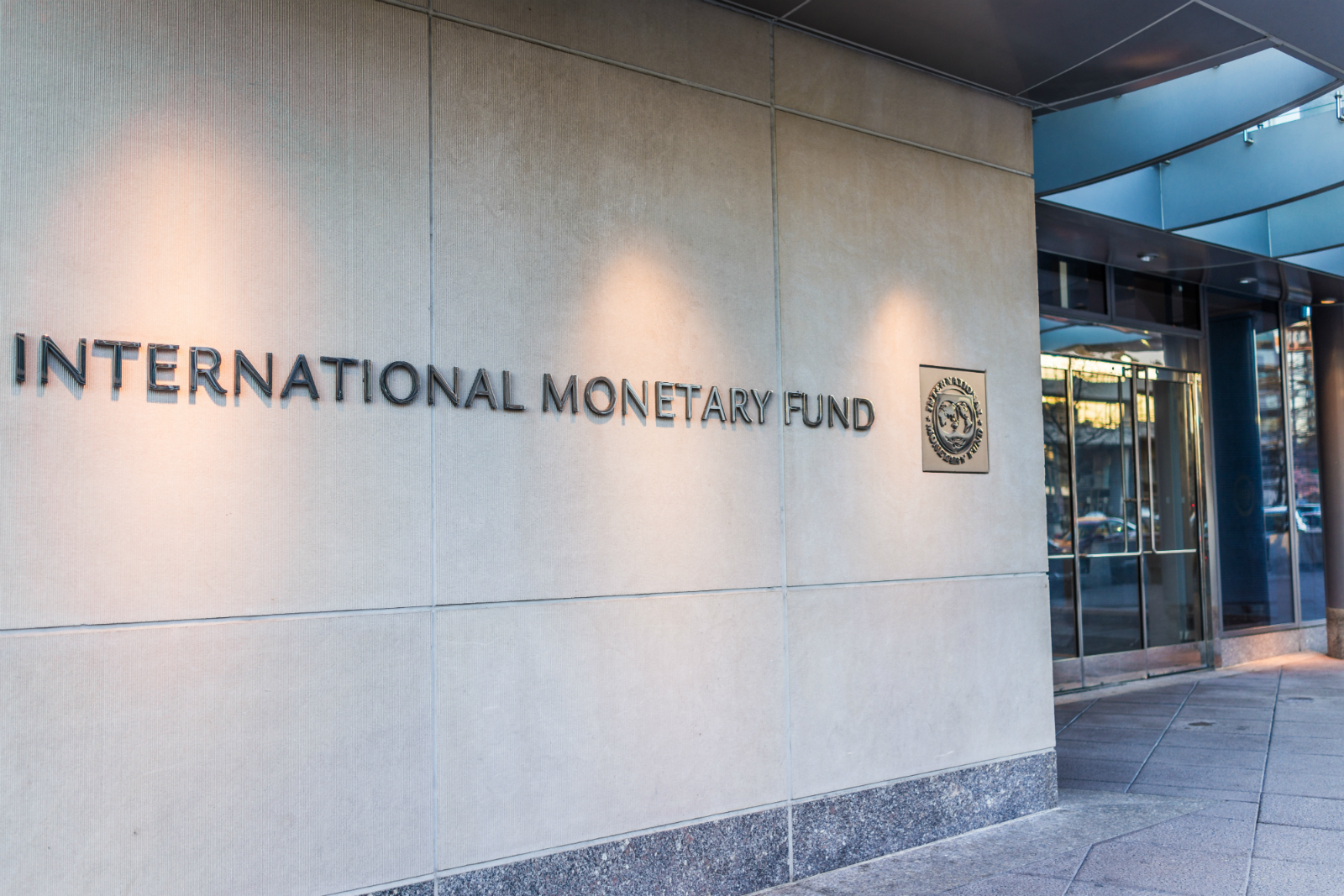
“Productive discussions” with the IMF — but no agreement yet: The IMF and Egyptian officials held “productive discussions” on a fresh assistance programme during recent meetings in Cairo, the Fund and a government spokesperson said in separate statements this past Friday. The staff-level talks, which took place between 26 June and 7 July, focused on the “economic policies and reforms” that would be tied to a potential loan agreement, the IMF said.
It’s not clear when we can expect a breakthrough: “In the period ahead, we are continuing our close engagement with the authorities towards reaching staff level agreement,” the IMF said. Cabinet spokesperson Nader Saad that the consultations will continue in the coming weeks.
We did get confirmation of what kind of IMF support to expect: Both sides said they were negotiating funding under an Extended Fund Facility (EFF). This would be Egypt’s second EFF in recent years after it agreed a USD 12 bn, three-year program back in 2016.
And we have backing from the White House: “The United States commends Egypt’s consultations with the International Monetary Fund and supports the provision of additional funding to Egypt through the IMF’s resilience and sustainability trust,” a joint statement from Ittihadiya and the White House read. The statement was released after President Abdel Fattah El Sisi’s sitdown with US President Joe Biden this weekend.
Talks have been ongoing for several months: Both sides announced that Egypt had officially requested a new programme in March in response to the war in Ukraine, which has piled financial pressure on the North African country.
This isn’t a replay of 2016: CBE governor Tarek Amer has said that Egyptian officials are negotiating a “limited” amount of funding because the country has already exceeded its quota.
Is there a chance this will be a “mega” facility? BNP Paribas thinks we could secure as much as USD 10 bn from the IMF to plug our widening funding gap. “Current talks between Egypt and the Fund will culminate in a sizable EFF of USD 10 bn or more, without which the central bank’s foreign reserves would be severely depleted,” Mohamed Abdelmeguid, MENA economist at the bank, wrote in a note last week. Support from the IMF and Gulf allies, as well as a recovery of portfolio flows, will be critical to close the funding gap, which could otherwise grow by a further USD 16 bn, he wrote.
Why we need this: Emerging markets have been particularly hard hit by major portfolio outflows triggered by higher financing costs and the “unprecedented” wave of global inflation, Saad said in the statement. The government has estimated that the country has seen USD 20 bn in foreign outflows this year. Any IMF support would be directed to stabilizing the economy and ensuring supplies of key commodities, he added.
ECONOMY
Foreign reserves fall again in June
Foreign reserves dip in June: Foreign reserves fell to USD 33.4 bn at the end of June, from USD 35.5 bn a month earlier, according to central bank figures released last week. Reserves have fallen from almost USD 41 bn over the past four months as the central bank has acted to cover portfolio outflows, imports and debt repayments. The war in the Ukraine has sent Egypt’s wheat and energy import bills surging and while investor uncertainty triggered by the war and rising interest rates has seen around USD 20 bn in foreign capital leave the country.
The figures were picked up by the foreign press: Bloomberg.
A MESSAGE FROM
The Coca-Cola Company launched a more sustainable product by replacing the memorable green Sprite bottle with a transparent (clear PET) one. The Coca-Cola Company, with its World Without Waste program, aims to help in collecting and recycling the same number of bottles for every bottle sold, leading to plastic neutrality by 2030, as well as to use up to 50% of recycled materials in the bottles and cans by the same year. Learn more here.
M&A WATCH
ADQ’s Agthia to buy majority stake in Auf Group
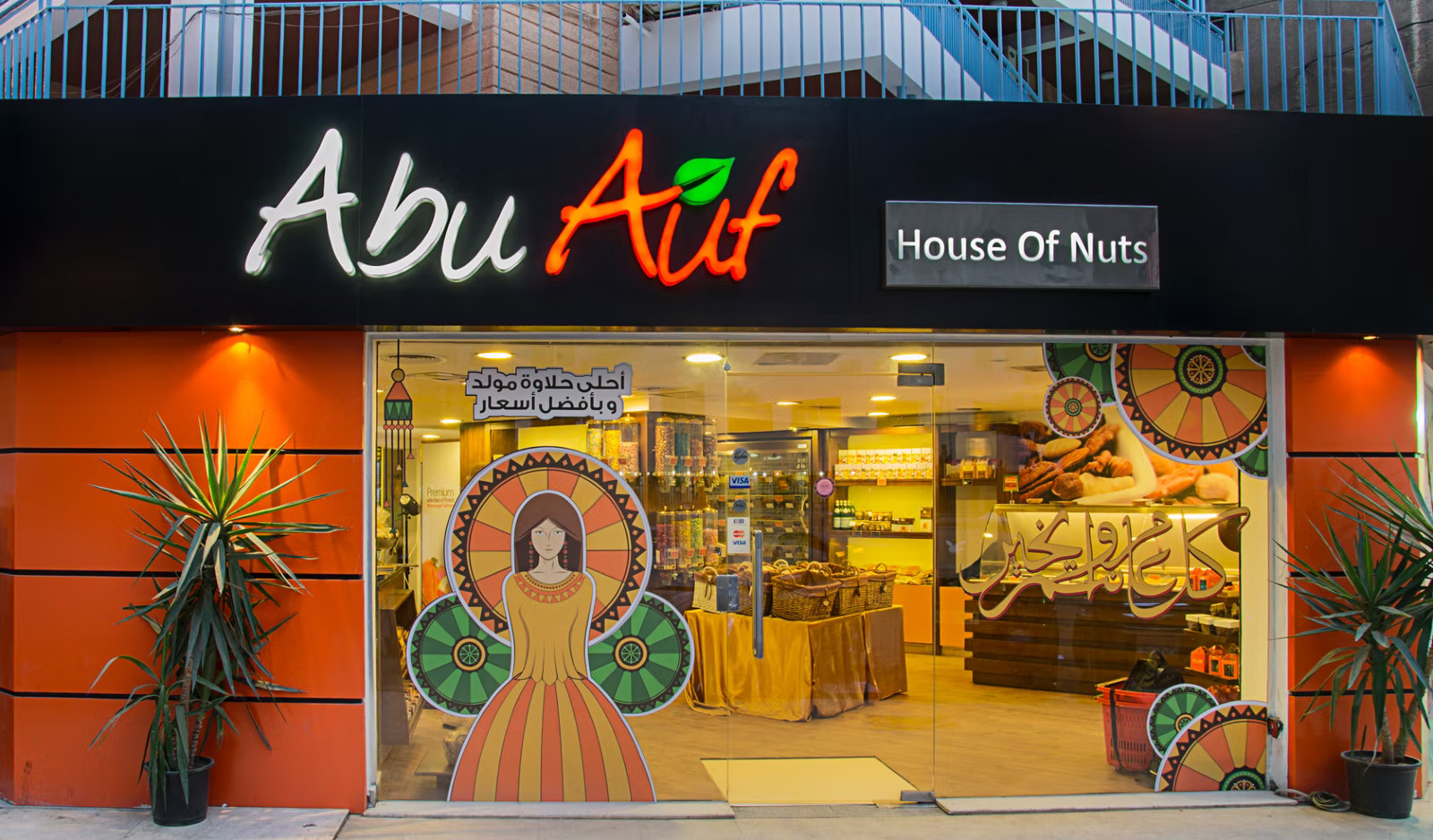
Abu Auf parent company is selling a majority stake to Agthia: Emirati food and beverage major Agthia will acquire 60% of Egyptian healthy food company Auf Group for EGP 2.9 bn, the company said in a disclosure (pdf) to the Abu Dhabi stock exchange on Thursday. Agthia, which is majority-owned by Abu Dhabi sovereign fund ADQ, said its board had approved the transaction, which values Auf at around EGP 4.9 bn. Among the Auf Groups’ assets is the popular food brand Abu Auf.
Who’s selling? Agthia is buying the stake from shareholders Ahmed Auf, Mohamed Auf, Ayman Auf, and Tanmiya Capital Ventures (TCV), according to the filing. Following the transaction — which remains subject to regulatory approvals — the three founders will retain a combined 30%, while TCV will hold a 10% stake, according to a statement (pdf) from our friends at sell-side advisor EFG Hermes. The transaction will take place through Agthia subsidiary AG Synergy Holdings.
What’s the appeal for Auf? Agthia will help take the company regional. “We believe that this [transaction] will bring synergies regionally and benefit us in our growth objectives,” the company’s Chief Marketing Officer Rasha Ghaly told Enterprise.
Why go this route instead of an IPO? Auf had as recently as April been eyeing an IPO on the EGX this year but Agthia’s F&B experience in the region made the acquisition route the more attractive choice, Ghaly said. The company had planned to offer up to 49% of its shares on the EGX, expecting to raise some EGP 2.5 bn in the sale.
Post-acquisition investment plans: The company plans to invest EGP 60 mn in 2022 to boost its manufacturing capacity as it eyes regional exports and will follow that up with USD 5-7 mn of investment in 2023 as it expands in the Gulf, Ghaly said. Abu Auf already operates three flagship stores in the UAE and plans to open another two stores by the end of 3Q. The company is also looking to expand into Saudi Arabia on the back of the acquisition, she added.
Abu Auf is sticking to its Egyptian roots — and team: The company will also keep its existing executive management team including the three founders and will not be moving its HQ abroad for at least the next three years, Ghaly told us.
Agthia likes our food sector: The Emirati food conglomerate last year acquired 75% of Atyab brand owner Ismailia Agricultural and Industrial Investments. The company in March said it had around AED 1.5 bn (USD 408 mn, or EGP 7.7 bn) to spend on potential acquisitions in Egypt, Saudi Arabia, Pakistan and Turkey, after reporting more than sixfold growth in its net income in 2021.
And ADQ is investing heavily here: The Abu Dhabi wealth fund recently invested USD 1.8 bn in state-held stakes in five EGX-listed companies (among them EGX bellwether CIB), adding to an existing portfolio of local investments that includes real estate developer SODIC, which ADQ co-owns with Aldar Properties, and Bausch Health’s local pharma outfit Amoun Pharma.
Advisors: Our friends at EFG Hermes advised Auf and TCV, while Al Tamimi & Co was Auf’s legal advisor. Freshfields Bruckhaus Deringer LLP and Matouk Bassiouny & Hennawy are acting as Agthia's legal counsel. CI Capital was financial adviser to Agthia.
The story got traction in the foreign press: Reuters | The National | Arabian Business.
MEANWHILE, IS PACHIN IN PLAY?
Saybad Industrial Investment has offered to buy 100% of EGX-listed Paint and Chemical Industries (Pachin), according to a regulatory filing (pdf). Saybad’s offer prices Pachin’s shares at between EGP 16.00 and EGP 16.50 apiece, valuing the company at EGP 384-396 mn. Pachin shares rose 3.53% at the end of trading to close at EGP 15.56 on Thursday, 7 July, when the transaction was announced.
Who is Saybad Industrial Investment? The Egyptian outfit comprises a group of local investors who are active in the paint industry here and across Asia, according to the disclosure.
Part of the state’s privatization plans: “This offer comes as the first actual application of the state's mandate to exit economic sectors for the benefit of the local private sector,” a source with first-hand knowledge of the transaction told Enterprise on condition they not be named. Pachin is currently approximately 54% owned by state-owned companies and banks, the source added.
ADVISORS- Catalyst Partners is acting as Pachin's financial advisor. Adsero–Raji Soliman & Associates is the firm’s legal advisor.
CABINET WATCH
Cabinet approves three-year real estate tax holiday for some industries
No real estate tax for SMEs + strategic industries: The state will waive real estate tax for three years for small and micro businesses as well as strategic industries involved in national projects, according to a cabinet statement. Cabinet members approved the move in their final weekly meeting before the Eid break, saying the decision would support businesses struggling amid the current global economic conditions.
The tax holiday was first announced as part of the EGP 130 bn economic support package unveiled by the Madbouly government in the spring and is expected to cost the government some EGP 3.75 bn.
Also getting a nod: Cabinet also approved building six new technology universities in Giza, Alexandria, Port Said, Luxor, Assiut and Gharbiya governorates. The new facilities are set to open their doors in the next academic year.
Hello there, Air Sphinx: New budget airline Air Sphinx will begin operations this winter from airports in Hurghada, Sharm El Sheikh, Luxor, Sphinx interantioanl in Giza, and Cairo, the statement said. The carrier is a subsidiary of EgyptAir.
STARTUP WATCH

Cairo-based logistics startup Mylerz plans to launch in Algeria, Tunisia, and Morocco in 4Q2022, founder and CEO Samer Gharaibeh told Morocco World News. This comes after the startup raised USD 9.6 mn in equity funding from private equity outfit Lorax Capital Partners and Fawry. Back in May, Gharaibeh said the company was intending to enter the North African markets within three months. The company is also looking at Libya, Sudan, and East Africa next year.
About Mylerz: Founded in 2019 by Gharaibeh, the firm offers same-day, last-mile delivery for e-commerce merchants. Mylerz currently operates 21 fulfillment centers across Egypt and plans to open its largest fulfillment hub yet in West Cairo by the end of the year. The startup delivered 2 mn packages within two years of its launch.
LAST NIGHT’S TALK SHOWS
President Abdel Fattah El Sisi’s sit-down this weekend with Joe Biden was the lead story on the talk shows last night. See Diplomacy, below, for chapter and verse.
MEANWHILE: Health minister denies new covid hospitals. The Health Ministry has not set up new covid isolation hospitals, acting Health Minister Khaled Abdel Ghaffar said in a phone-in with El Hekaya’s Amr Adib (watch, runtime 3:27), denying a statement that has been circulating in the local media. Egypt has been seeing a rise in its weekly covid figures, currently sitting at around 35 new covid cases a day and five covid-related deaths every day, he said. Ministry spokesperson Hossam Abdel Ghaffar also denied the reports in an interview on Al Hayah Al Youm (watch, runtime: 11:27).
The news comes as covid cases ramp up in Canada, the United States and much of Europe on the back of the highly transmissible BA.4 and BA.5 variants.
EGYPT IN THE NEWS
Activists in the United States are zeroing in on COP27 as a pressure point they can use to highlight our human rights record. You can expect this theme to have legs heading into fall.
Setting the tone: “If Egypt won’t free Alaa Abd El-Fattah, it had better brace for an angry climate conference” in the New Yorker, while the Associated Press writes that rights groups want Egypt to “open civic space ahead of COP27.” Dozens of US and British lawmakers had urged US President Joe Biden in an open letter to bring up human rights with President Abdel Fattah El Sisi during their weekend meeting, according to AFP. Meanwhile, the Guardian gives plenty of ink to a young White House adviser and his partner asling the UN to strip Egypt of hosting duties, citing the country’s stance on LGBTQ rights.
ALSO- The New York Times is out with a long piece on pre-trial detention in Egypt, the Associated Press has the latest on the Regeni case, and the Economist has taken note is the latest to take note of the fact that the powers that be are not big fans of mahraganat.
Low expectations of COP27? The Financial Times is down on the prospects for the global climate summit after the US Supreme Court kneecapped the Biden administration’s attempts to limit carbon emissions, a decision which other countries say undermines the US’ credibility in climate talks.
MEANWHILE-
- El Gouna gets praise for its commitment to sustainability and environmental protection. (BBC Travel)
- Introducing our new national football team coach, Rui Vitoria: The Portuguese manager’s first task will be to steer the Pharaohs to next year’s Africa Cup of Nations. (Arab News)
- A Czech archaeological mission uncovered an ancient Egyptian military official’s tomb 12 km south-east of the Pyramids of Giza. (The National)
ALSO ON OUR RADAR
GASC bought 63k tons of German wheat directly from suppliers on 5 July, Reuters reported Thursday, citing anonymous sources. This is the same day that the state grain buyer was reported to have purchased 444k tons of Russian, French and Romanian wheat without issuing an international tender. The authority typically purchases wheat via tenders, but in May the cabinet gave the go-ahead for the authority to buy directly from suppliers. GASC reportedly purchased the German wheat for USD 420 per ton on a cost and freight basis.
MEANWHILE- Our friends at renewable energy player Infinity along with Hassan Allam Holding and Madkour are reportedly in the running to install a solar power installation at Sharm El Sheikh International Airport. The tender will be finalized in the coming weeks. See this in the context of the greening of Sharm ahead of COP27 — and expect more such announcements in the weeks to come, we think.
Other things we’re keeping an eye on this morning:
PLANET FINANCE
Default on the horizon? A record number of emerging markets are facing pressure as debt sell-off grows: Soaring inflation and rising US interest rates have sent investors fleeing emerging market (EM) countries this year, leaving “a record number of developing nations” facing possible default, according to Reuters. Taking into account falling currencies, dwindling reserves and 1,000 bps bond spreads, the newswire has named a dozen countries, including Argentina, Ecuador, Egypt, and Tunisia, as approaching the “danger zone” due to rising borrowing costs, inflation and debt.
Readers will recall that Bloomberg is also on the story, saying Egypt joins El Salvador, Ghana, Tunisia and Pakistan as being vulnerable to default. The business information service quotes one portfolio manager as suggesting that “about 10% of USD-denominated sovereign debt is at a high risk of default. … Russia and Sri Lanka have already defaulted this year, and there’s now a record 19 developing countries with sovereign debt trading at distressed levels.”
Don’t look at the yields: Yields on sovereign bonds of more than 12 developing countries are now trading at distressed levels, the FT writes, parsin Bloomberg data. “It’s pretty shocking to see this scale of a collapse in bond prices,” said Charlie Robertson, global chief economist at Renaissance Capital, adding that the sell-off is “one of the biggest I’ve seen in 25 years.” Investors have pulled USD 52 bn from EM bonds so far this year, according to JPMorgan.
A spate of defaults isn’t necessarily in the cards, according to some analysts who say that soaring yields are more an indicator of global economic headwinds than fiscal strains in all of these countries. “This is more a sentiment thing than a fear that countries will fall into default,” an investment manager at Amundi said. “But if this is prolonged, obviously it will increase funding costs for those countries and that will feed back into their ability to pay.”
ALSO IN PLANET FINANCE-
- Musk’s out…: Tech b’naire Elon Musk has terminated his USD 44 bn acquisition of Twitter, arguing that the social media platform has violated multiple provisions of the merger agreement. (SEC)
- …and in a legal battle: In response, Twitter has filed a lawsuit to enforce the takeover bid, a move that could see a trial take place in September. "Musk apparently believes that he – unlike every other party subject to Delaware contract law – is free to change his mind, trash the company, disrupt its operations, destroy stockholder value, and walk away,” Twitter said. (Reuters)
- Nicht Uber: Ride-hailing giant Uber is at the center of a Europe-wide scandal after the Guardian published info from a leaked trove of 124k+ documents revealing the company’s secret lobbying efforts and dubious tactics used to enter new markets. (The Guardian)
- RIP SPACkman: B’naire investor Bill Ackman will shut down his special purpose acquisition company (SPAC) and return USD 4 bn to investors after failing to find a target company to take public through a merger. (FT)
|
|
EGX30 |
8,764 |
+1.1% (YTD: -26.7%) |
|
|
USD (CBE) |
Buy 18.83 |
Sell 18.91 |
|
|
USD at CIB |
Buy 18.85 |
Sell 18.91 |
|
|
Interest rates CBE |
11.25% deposit |
12.25% lending |
|
|
Tadawul |
11,163 |
-1.1% (YTD: -1.1%) |
|
|
ADX |
9,250 |
+0.1% (YTD: +9.0%) |
|
|
DFM |
3,160 |
+0.2% (YTD: -1.1%) |
|
|
S&P 500 |
3,863 |
+1.9% (YTD: -19.0%) |
|
|
FTSE 100 |
7,159 |
+1.7% (YTD: -3.1%) |
|
|
Euro Stoxx 50 |
3,477 |
+2.4% (YTD: -19.1%) |
|
|
Brent crude |
USD 101.16 |
+2.1% |
|
|
Natural gas (Nymex) |
USD 7.02 |
+6.3% |
|
|
Gold |
USD 1,703.60 |
-0.1% |
|
|
BTC |
USD 21,181 |
+1.2% (YTD: -54.3%) |
THE CLOSING BELL-
The EGX30 rose 1.1% at last Thursday’s close on anemic turnover of EGP 395.45 mn (52.3% below the 90-day average). Foreign investors were net sellers. The index is down 26.7% YTD.
In the green: Credit Agricole Egypt (+5.2%), Palm Hills Development (+4.3%) and MM Group (+2.5%).
In the red: Medinet Nasr Housing (-5.1%), GB Auto (-1.1%) and Heliopolis Housing (-1%).
DIPLOMACY

The Big Biden meet: There were plenty of headlines coming out of US President Joe Biden’s much-hyped visit to Saudi Arabia over the weekend for a Jeddah-hosted summit with Arab leaders.
What happened: Biden made nice with KSA, including a face-to-face meeting (and fist bump) with MbS (which the Washington Post says caused a “snit online.”)
What didn’t happen: No Saudi recognition of Israel, no beatdown of Egypt, and no overt backing of our case for a proper settlement on the Grand Ethiopian Renaissance Dam.
Ittihadiya and the White House issued a joint statement that led (after the usual talk of “shared security”) with the US’ commitment to advancing Egypt’s economic prosperity — and a nod to how much we’re being squeezed by Putin’s war in Ukraine. Human rights and COP27 brought up the rear of the statement, which also touched on Israel-Palestine.
Sisi, Biden talk food and energy security: President Abdel Fattah El Sisi on Saturday met with the US president for the first time since he assumed office in 2021, an Ittihadiya statement read. Ways to face the global food crisis and disruptions to global energy supplies topped the agenda, according to the statement.
We’re getting USD 50 mn from the US to bolster food security, Biden told El Sisi, according to the joint statement. This is part of USD 1 bn of fresh assistance to improve the region’s food supply announced by the president during the summit.
A word on the war: “The United States and Egypt share particular concerns over the severe global consequences that stem from the war in Ukraine,” the statement said, adding that “the blockading of Black Sea ports has triggered rising food insecurity and levied significant economic pressures on Egypt.”
DOMESTIC REAX-
The nation’s talking heads were all about the big Biden meet last night: Everyone and their mothers were talking about Biden’s visit to the region in KSA. The summit received coverage from Al Hayah Al Youm (watch, runtime: 55:15), El Hekaya (watch, runtime: 7:51), Ala Mas’ouleety (watch, runtime: 3:02) and Kelma Akhira, who had on professor Moataz Abdelfattah (watch, runtime: 13:46).
Also from the Biden-Arab summit:
- No Saudi promises on oil: The US and Saudi Arabia “renewed their commitment towards the stability of global oil prices” in a joint communique, but Saudi Arabia appears not to have responded to Biden’s calls to up production to help alleviate the current price squeeze. (SPA)
- US troops will leave the Red Sea island of Tiran by the end of the year, Biden announced following meetings with King Salman and MbS, according to a statement by the White House. The move is part of a plan to finalize the transfer of sovereignty of the Tiran and Sanafir islands from Egypt to Saudi Arabia, which could pave the way to Saudi Arabia and Israel normalizing ties. AFP has more.
- Saudi Arabia opened its airspace to flights from Israel on Friday. (Times of Israel)
AROUND THE WORLD
Divisions on display at G20: G20 finance ministers failed to issue a joint communique following its two-day meeting in Indonesia yesterday amid disagreements about Russia’s invasion of Ukraine, Reuters reports. Officials pledged to address rising global food insecurity and growing debt but were unable to agree on issues relating to the war, an outcome described by the Indonesian finance minister as the “best result” they could have hoped for. Western nations have slapped strict sanctions on Russia and tried to isolate it from the global economy, but other G20 nations including China, India, Brazil and South Africa have maintained ties and refused to denounce Moscow.
Abe assassinated: Former Japanese Prime Minister Shinzo Abe was shot and killed last week while giving a campaign speech, Reuters reported. Police arrested the suspected shooter and identified him as 41-year-old veteran Tetsuya Yamagami, who reportedly used a home-made gun. Japan’s longest-serving prime minister, Abe made his name with his more assertive foreign policy and a set of economic ideas based on loose monetary policy and fiscal stimulus that came to be known as ‘Abenomics.’
CALENDAR
OUR CALENDAR APPEARS in two sections:
- Events with specific dates or months are right here up top
- Events happening in a quarter or other range of time with no specific date / month appear at the bottom of the calendar.
JULY
July: A law governing ins. for seasonal contractors will come into effect.
July: Actis’ expected sale of its majority stake in Lekela to Infinity and Masdar’s Infinity Power.
19 July (Tuesday): The national dialogue’s board to reconvene.
21 July (Thursday): European Central Bank monetary policy meeting.
26-27 July (Tuesday-Wednesday): Federal Reserve interest rate meeting.
30 July (Saturday): Islamic New Year.
Late July-14 August: 2Q2022 earnings season.
AUGUST
August: Work to extend the capacity of the Egypt-Sudan electricity interconnection to 600 MW to be completed.
August: Sharm El Sheikh will host the African Sumo Championship.
18 August (Thursday): Central Bank of Egypt’s Monetary Policy Committee meeting.
SEPTEMBER
September: Egypt will display its first naval exhibition, Naval Power.
September: Estate Waves Egypt real estate exhibition through metaverse technology.
September: Central Bank of Egypt’s Innovation and Financial Technology Center to launch incubator for 25 fintech startups.
September: The sixth session of the Egyptian-German Joint Economic Committee.
September: A delegation from Germany’s Aldi will visit Egypt to look at potential investments.
6-9 September (Tuesday-Friday): Gate Travel Expo 2022, El Kobba Palace, Cairo.
7-9 September (Wednesday-Friday): African Finance Ministers to meet in Cairo to coordinate an African-led position during COP27.
The ministers’ meeting, scheduled for September 7 to 9 in Egypt,
8 September (Thursday): European Central Bank monetary policy meeting.
18 September (Sunday): Deadline for brokerage firms, asset managers and financial advisors to register with the Egyptian Securities Federation.
20-21 September (Tuesday-Wednesday): Federal Reserve interest rate meeting.
22 September (Thursday): Central Bank of Egypt’s Monetary Policy Committee meeting.
26–27 September (Monday-Tuesday): The Africa Women Innovation and Entrepreneurship Forum (AWIEF) at the Cairo Marriott Hotel.
OCTOBER
October: Air Sphinx, EgyptAir’s low-cost subsidiary to commence operations.
October: Fuel pricing committee meets to decide quarterly fuel prices.
October: The finals of the IEEE’s Arab IoT & AI Challenge will be held during GITEX Technology Week in Dubai next October, with participants from 11 Arab countries.
1 October (Saturday): Use of Nafeza becomes compulsory for air freight.
6 October (Thursday): Armed Forces Day, national holiday.
8 October (Saturday): Prophet Muhammad’s birthday, national holiday.
10-16 October (Monday-Sunday): World Bank and IMF annual meetings chaired by CBE Governor Tarek Amer, Washington, DC.
18-20 October (Tuesday-Thursday): Mediterranean Offshore Conference, Alexandria, Egypt.
27 October (Thursday): European Central Bank monetary policy meeting.
Late October-14 November: 3Q2022 earnings season.
NOVEMBER
November: Cairo Water Week 2022.
1-2 November (Tuesday-Wednesday): Federal Reserve interest rate meeting.
3 November (Thursday): Central Bank of Egypt’s Monetary Policy Committee meeting.
3-5 November (Thursday-Saturday): Egypt Fashion Week.
4-6 November (Friday-Sunday): The Autotech auto exhibition kicks off at the Cairo International Exhibition and Convention Center.
6-18 November (Sunday-Friday): Egypt will host COP27 in Sharm El Sheikh.
7-13 November (Mon-Sun): The International University Sports Federation (FISU) World University Squash Championships, New Giza.
21 November-18 December (Monday-Sunday): 2022 Fifa World Cup, Qatar.
13-14 December (Tuesday-Wednesday): Federal Reserve interest rate meeting.
15 December (Thursday): European Central Bank monetary policy meeting.
DECEMBER
22 December (Thursday): Central Bank of Egypt’s Monetary Policy Committee meeting.
December: The Sixth of October dry port will begin operations.
JANUARY 2023
January EGX-listed companies and non-bank lenders will submit ESG reports for the first time.
January: Fuel pricing committee meets to decide quarterly fuel prices.
MAY 2023
22-26 May (Monday-Friday): Egypt will host the African Development Bank (AfDB) annual meetings in Sharm El Sheikh.
EVENTS WITH NO SET DATE
2H2022: The inauguration of the Grand Egyptian Museum.
2H2022: IEF-IGU Ministerial Gas Forum, Egypt. Date + location TBA.
2H2022: The government will have vaccinated 70% of the population.
3Q2022: Ayady’s consumer financing arm, The Egyptian Company for Consumer Finance Services, to release its first financing product.
End of 2022: e-Aswaaq’s tourism platform will complete the roll out of its ticketing and online booking portal across Egypt.
2023: Egypt will host the Asian Infrastructure Investment Bank’s Annual Meeting of the Board of Governors in 2023.
**Note to readers: Some national holidays may appear twice above. Since 2020, Egypt has observed most mid-week holidays on Thursdays regardless of the day on which they fall and may also move those days to Sundays. We distinguish above between the actual holiday and its observance.
Enterprise is a daily publication of Enterprise Ventures LLC, an Egyptian limited liability company (commercial register 83594), and a subsidiary of Inktank Communications. Summaries are intended for guidance only and are provided on an as-is basis; kindly refer to the source article in its original language prior to undertaking any action. Neither Enterprise Ventures nor its staff assume any responsibility or liability for the accuracy of the information contained in this publication, whether in the form of summaries or analysis. © 2022 Enterprise Ventures LLC.
Enterprise is available without charge thanks to the generous support of HSBC Egypt (tax ID: 204-901-715), the leading corporate and retail lender in Egypt; EFG Hermes (tax ID: 200-178-385), the leading financial services corporation in frontier emerging markets; SODIC (tax ID: 212-168-002), a leading Egyptian real estate developer; SomaBay (tax ID: 204-903-300), our Red Sea holiday partner; Infinity (tax ID: 474-939-359), the ultimate way to power cities, industries, and homes directly from nature right here in Egypt; CIRA (tax ID: 200-069-608), the leading providers of K-12 and higher level education in Egypt; Orascom Construction (tax ID: 229-988-806), the leading construction and engineering company building infrastructure in Egypt and abroad; Moharram & Partners (tax ID: 616-112-459), the leading public policy and government affairs partner; Palm Hills Developments (tax ID: 432-737-014), a leading developer of commercial and residential properties; Mashreq (tax ID: 204-898-862), the MENA region’s leading homegrown personal and digital bank; Industrial Development Group (IDG) (tax ID:266-965-253), the leading builder of industrial parks in Egypt; Hassan Allam Properties (tax ID: 553-096-567), one of Egypt’s most prominent and leading builders; and Saleh, Barsoum & Abdel Aziz (tax ID: 220-002-827), the leading audit, tax and accounting firm in Egypt.
